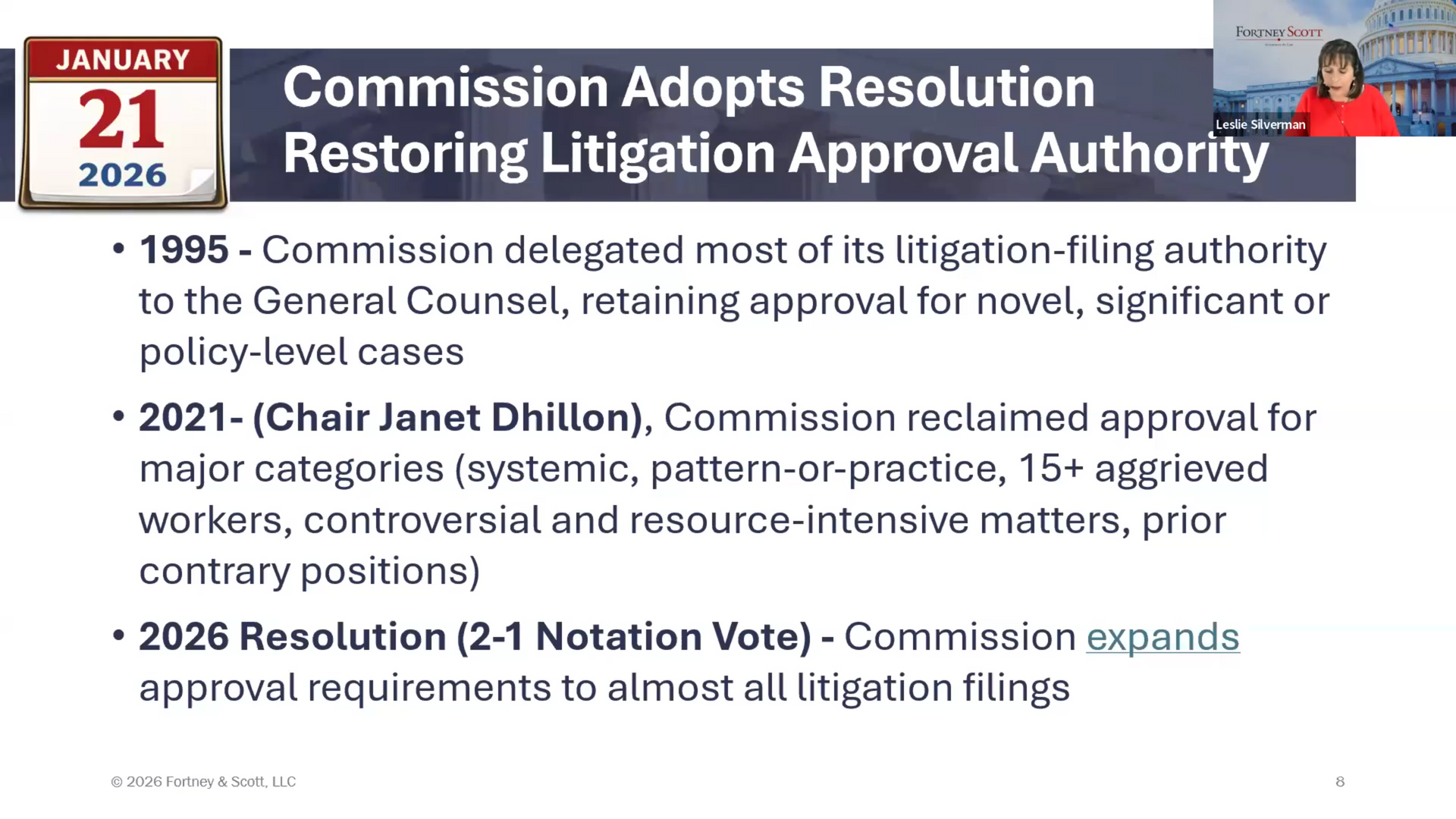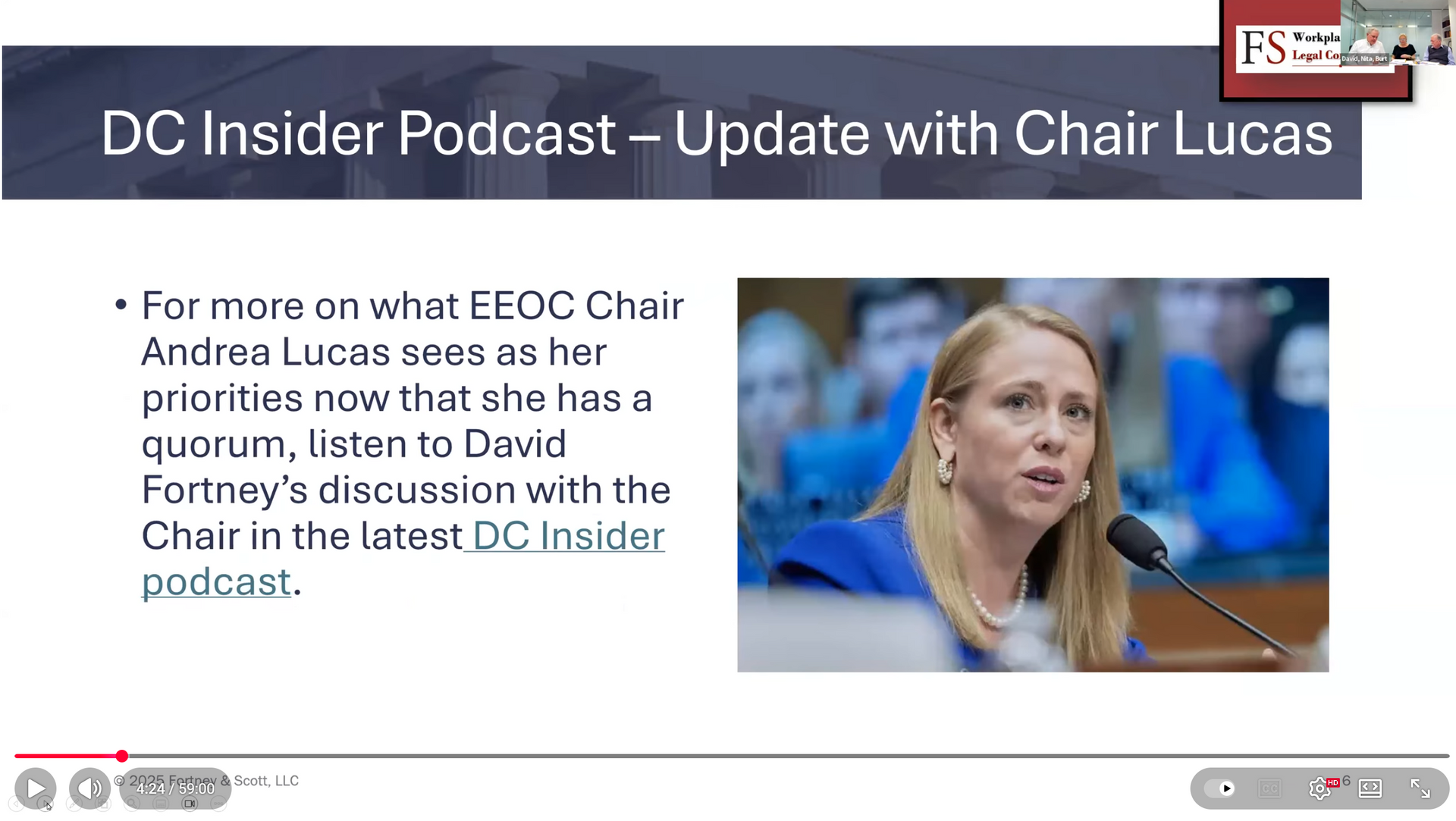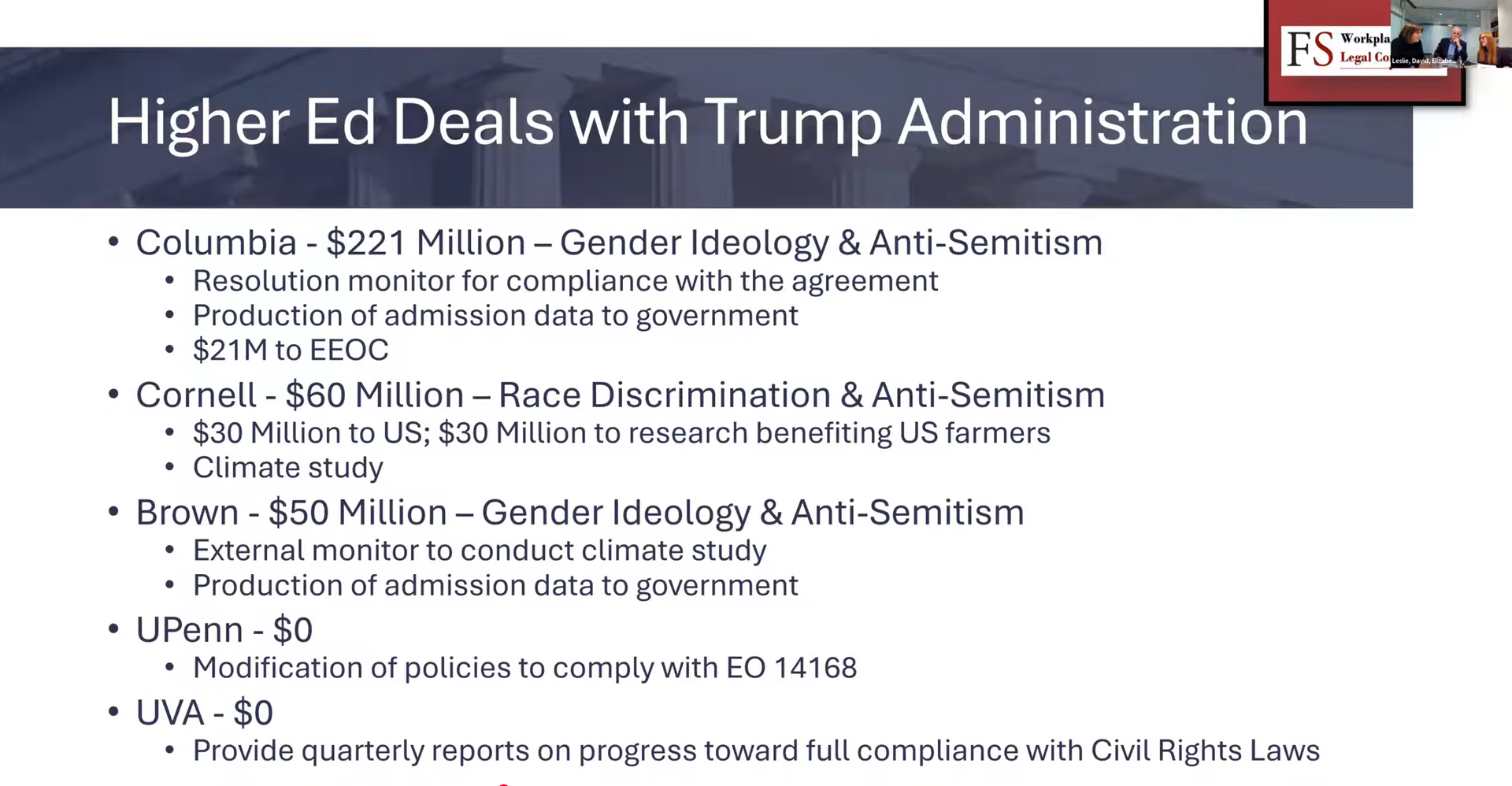EEOC Issues New Resource Document Addressing Issues Related to Leave and Disability
On May 9, 2016, the Equal Employment Opportunity Commission (EEOC) issued a new resource document, titled Employer-Provided Leave and the Americans with Disabilities Act that is intended to educate employers and employees about the use of leave as a reasonable accommodation under the American with Disabilities Act (ADA).
According to EEOC, this resource document comes at a time when disability charges filed with the agency reached a new high in fiscal year 2015 up 6% from the previous year. EEOC claims to have identified an uptick in employer policies that deny or unlawfully restrict the use of leave as a reasonable accommodation, which often acts as systemic barriers to the employment of workers with disabilities.
The EEOC has long acknowledged employer confusion around the issue of leaves of absence under the ADA. The Commission held a meeting on the subject matter in 2009 where it discussed the need for additional guidance. The resource document does not create any new agency policies and consolidates existing EEOC policies and guidance into one place. It also provides numerous detailed examples illustrating when and how leave must be granted for reasons related to an employees disability. Although the resource document was not voted on by the Commission and cannot be considered official EEOC guidance, it is still worthy of employers attention. The guidance is divided into the following subject areas:
- Equal Access to Leave Under an Employers Leave Policy Employers must provide employees with disabilities access to leave on the same basis as all other similarly-situated employees. If an employer does not place conditions on its employees use of paid leave it cannot impose conditions on an employee who is seeking to use paid leave for reasons related to a disability.
- Granting Leave as a Reasonable Accommodation Employers must consider providing unpaid leave to an employee with a disability as a reasonable accommodation if the employee requires it, and so long as it does not create an undue hardship for the employer.
- Leave and the Interactive Process Generally Employers must engage in an interactive process with an employee who requests leave as a reasonable accommodation, which should focus on the specific reason (s) the employee needs leave, whether the leave will be a block of time or be intermittent, and when the need for leave will end. Employers should treat an employee with a disabilities request for medical leave which is not otherwise covered by the employers existing policy or law (e.g., FMLA, state and local law, workers compensation) as a request for a reasonable accommodation and engage in the interaction process.
- Maximum Leave Policies While employers are allowed to have policies that set a maximum amount of leave, they may have to grant additional leave as a reasonable accommodation to employees who require it because of a disability, unless the employer can show that doing so will cause an undue hardship.
- Return to Work and Reasonable Accommodation An employer cannot require an employee with a disability to be 100 percent healed or recovered if the employee can perform his or her job with or without reasonable accommodation, unless the employer can show providing the needed accommodations would cause an undue hardship.
- Reassignment - An employer must reassign employees who are unable to return to their existing job due to a disability to a vacant position for which the employee is qualified. The employee should not have to compete with other applicants and should be reassigned to a vacant position absent a uniformly applies bonafide seniority system.
- Undue Hardship In deciding whether to grant leave as a reasonable accommodation, employers should consider factors such as the amount and/or length of leave required, the frequency of the leave, the impact of the employees absence on coworkers and on whether specific job duties are being performed in an appropriate and timely manner, and the impact on the employers operations and its ability to serve customers/clients appropriately and in a timely manner. A request for indefinite leave when an employee cannot say whether or when she will be able to return to work at all, will constitute an undue hardship and does not require a reasonable accommodation.
Please contact your FortneyScott attorney for any questions you may have relating to this topic.

















